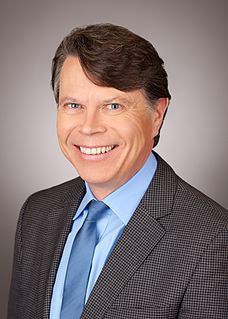A Quote by James F. Cooper
The disposition of all power is to abuses, nor does it at all mend the matter that its possessors are a majority. Unrestrained political authority, though it be confided to masses, cannot be trusted without positive limitations, men in bodies being but an aggregation of the passions, weaknesses and interests of men as individuals.
Related Quotes
Men are qualified for civil liberty in exact proportion to their disposition to put moral chains upon their own appetites…in proportion as they are more disposed to listen to the counsels of the wise and good, in preference to the flattery of knaves. Society cannot exist, unless a controlling power upon will and appetite be placed somewhere; and the less of it there is within, the more there must be without. It is ordained in the eternal constitution of things, that men of intemperate minds cannot be free. Their passions forge their fetters.
If God does not exist, and if religion is an illusion that the majority of men cannot live without ... let men believe in the lies of religion since they cannot do without them, and let then a handful of sages, who know the truth and can live with it, keep it among themselves. Men are then divided into the wise and the foolish, the philosophers and the common men, and atheism becomes a guarded, esoteric doctrine - for if the illusions of religion were to be discredited, there is no telling with what madness men would be seized, with what uncontrollable anguish.
Every man, and every body of men on earth, possesses the right of self-government. They receive it with their being from the hand of nature. Individuals exercise it by their single will; collections of men by that of their majority; for the law of the majority is the natural law of every society of men.
The great masses of men, though theoretically free, are seen to submit supinely to oppression and exploitation of a hundred abhorrent sorts. Have they no means of resistance? Obviously they have. The worst tyrant, even under democratic plutocracy, has but one throat to slit. The moment the majority decided to overthrow him he would be overthrown. But the majority lacks the resolution; it cannot imagine taking the risks.
If it be admitted that a man, possessing absolute power, may misuse that power by wronging his adversaries, why should a majority not be liable to the same reproach? Men are not apt to change their character by agglomeration; nor does their patience in the presence of obstacles increase with the consciousness of their strength. And for these reasons I can never willingly invest any number of my fellow creatures with that unlimited authority which I should refuse to any one of them.
People who seek political power are, with exceptions too rare to matter, never to be trusted; at best, such people are vain and officious busybodies. People who actually achieve political power are to be trusted even less than those who seek it without success; winning elections requires a measure of deceitfulness and Machiavellian immorality that no decent person comes close to possessing.
They were the triumphant and insolent possessors; they had a hall, and a fire, and food and clothing and money, and so they might preach to hungry men, and the hungry men must be humble and listen. They were trying to save their souls- and who but a fool could fail to see that all that was the matter with their souls was that they had not managed to get a decent existence for their bodies?
A man is not merely a man but a man among men, in a world of men. Being good at being a man has more to do with a man’s ability to succeed with men and within groups of men than it does with a man’s relationship to any woman or any group of women. When someone tells a man to be a man, they are telling him to be more like other men, more like the majority of men, and ideally more like the men who other men hold in high regard.




































